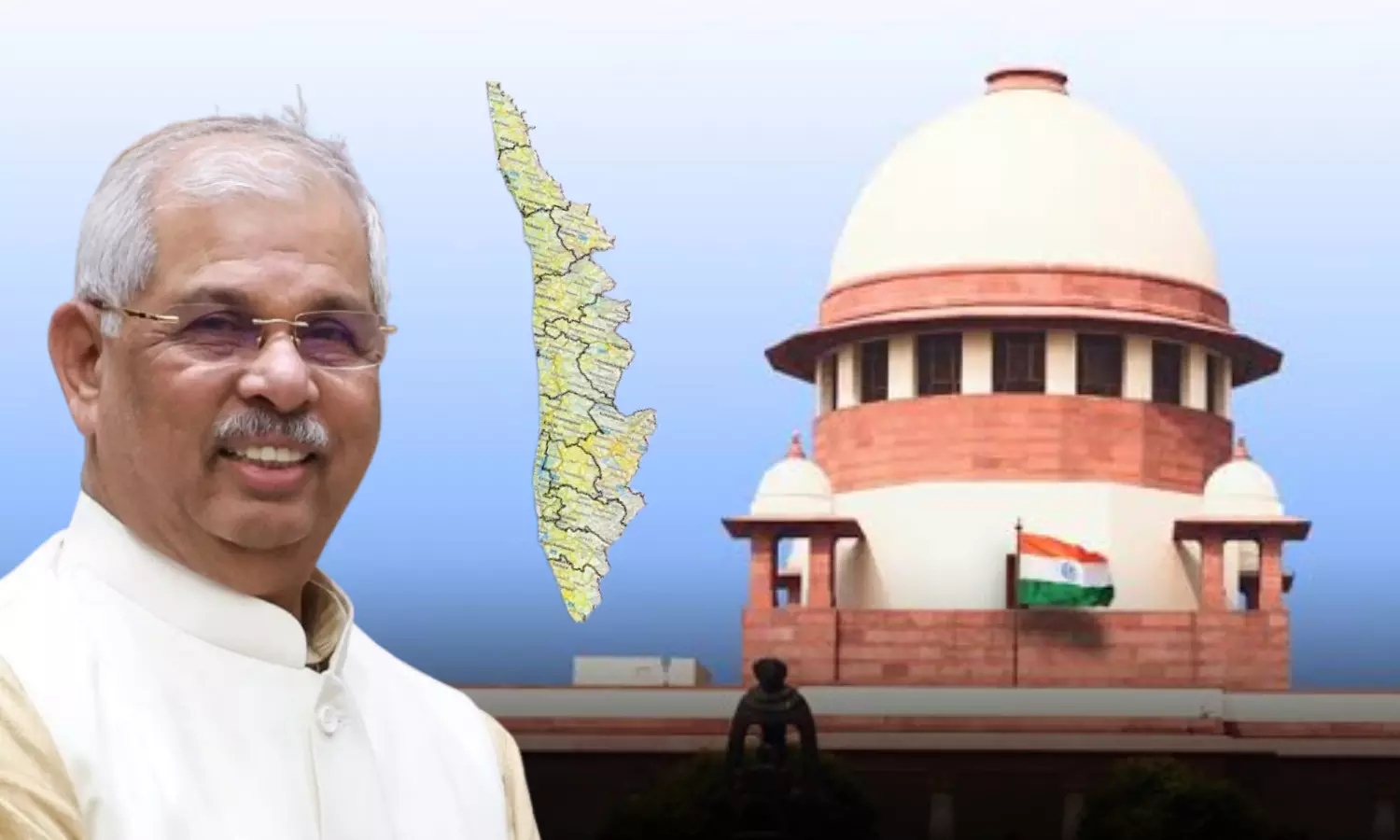
UGC Norms Override State Law: Kerala Governor Moves Supreme Court Challenging High Court's Verdict Against His Appointment Of Temporary VCs
 |
|The petition asserts that the Governor, as Chancellor, cannot be compelled by the State Government to appoint Vice Chancellors in violation of binding UGC Regulations.
Rajendra Vishwanath Arlekar, the Governor of Kerala, in his capacity as the Chancellor of APJ Abdul Kalam Technological University, has filed a Special Leave Petition before the Supreme Court challenging the judgment passed by the Division Bench of the Kerala High Court upholding the State Government’s invocation of Section 13(7) of the APJ Abdul Kalam Technological University Act, 2015 to make temporary Vice Chancellor appointments, despite non-compliance with the eligibility conditions prescribed under the University Grants Commission (UGC) Regulations, 2018.
The petition filed through AoR Venkita Subramoniam T.R, asserts that any appointment, temporary or otherwise, to the post of Vice Chancellor must conform strictly to the binding UGC Regulations, which override State law by virtue of Article 254 of the Constitution of India. It reads, “The crucial point to be considered in the present case is the power of the Chancellor of the University to appoint the Vice Chancellor, without interference from the part of the Government.”
The petition contends that Section 13(7) of the University Act is merely directory and cannot be used in perpetuity by the political executive to bypass central norms. It states, “Section 13(7) of the APJ Abdul Kalam Technological University Act is only directory in nature and when the Section very specifically and mandatorily state that the temporary appointment shall be only for a period of six months. On the expiry of six months, the State cannot invoke Section 13(7) at all which was ignored both by learned Single Judge as well as by the Hon’ble Division Bench.”
The petition says that the UGC Regulations do not recognise any concept of a “temporary Vice Chancellor”. All Vice Chancellors, regardless of tenure, must meet the qualifications set out in Regulation 7. The Petition states, “The UGC Regulations does not provide for a concept of temporary Vice Chancellors... A Vice Chancellor is a Vice Chancellor for the University if it is for one day or for a term of three years…The person to be appointed should be of quality and standard as provided in the UGC Regulations. UGC Regulations very clearly state that a person possessing the highest level of competence, integrity, morals and institutional commitment is to be appointed as Vice Chancellor and should be a distinguished academician with a minimum ten years experience as professor.”
The Petition notes that the Governor, as Chancellor, had rejected all three names recommended by the State Government after finding that none of them satisfied the UGC’s academic criteria. It states, “The Chancellor has rejected all the three names recommended by the State Government in view of the fact that none of the persons recommended by the State Government fulfills the requirement of UGC Regulations.”
It asserts that despite this, the State Government continued to push for a temporary appointment under Section 13(7). “The State Government is now seeking to force the Chancellor to act in accordance with Section 13(7) of the Act, ignoring the compliance with UGC Regulations”, it adds.
It has been contended that this undermines the autonomy of the office of the Governor, and violates the constitutional scheme under which the Governor is expected to act independently of the State’s political executive when discharging his statutory functions as Chancellor of public universities.
It also contends that Section 13(7) allows for a temporary appointment only from three categories: (i) Vice Chancellor of another university, (ii) Pro Vice Chancellor of the same university, or (iii) Secretary to Government, Higher Education Department. Of these, only the first category is UGC-compliant. It states, “Secondly the term of Pro Vice Chancellor is co-terminus with the post of Vice Chancellor... And Thirdly the Secretary to the Government, Higher Education Department being not an academician, cannot hold the post of Vice Chancellor, as per the UGC Regulations.”
It adds, “The very contention of the Respondent that the State law provide for appointment of a Vice Chancellor as a stop gap arrangement without complying with any of the conditions enumerated in the UGC Regulations is completely without substance and liable to be rejected.”
The Governor relies on several Supreme Court precedents, including Professor (Dr.) Sreejith P.S. v. Dr.Rajasree, (2022), in which the Court ruled that any appointment as a Vice Chancellor made on the recommendation of the Search Committee, which is constituted contrary to the provisions of the UGC Regulations would be void ab initio, and the Union law shall prevail as per Article 254 of the Constitution.
Objection has been raised in the petition to the fact that the UGC was not made a party before the High Court, even though its regulations were central to the dispute. This, it says, rendered the High Court’s analysis procedurally flawed.
The Governor, as Chancellor, has prayed for the quashing of the High Court’s judgment and for a declaration that all Vice Chancellor appointments, whether regular or temporary, must strictly comply with the UGC Regulations. It is also prayed that Section 13(7) of the University Act cannot be invoked repeatedly to sidestep academic standards or the Governor’s discretion.
Cause Title: The Chancellor, APJ Abdul Kalam Technological University v. State of Kerala & Ors. (Diary No. 40761/2025)